
Judgment's surprise PC release offers a familiar but remarkably fresh experience that new fans shouldn't skip
It's been a wild ride for late-to-the-party Yakuza (or, Like a Dragon) fans like myself over the last half-decade. Ever since the surprise announcement of Yakuza 0 for PC back in 2018, Sega and RGG Studio have rapidly released or re-released the entire main series catalog at a steady clip on PC and various modern platforms, culminating in a release of Yakuza 6: The Song of Life on PC and Xbox in early 2021. This was itself on the heels of the RPG genre-shift of Yakuza: Like a Dragon in 2020. All told, that's roughly 2 Yakuza series games per year between 2018 and 2022 in order to keep pace with it all. Yakuza: Like a Dragon, specifically, ended up becoming one of my favorite games of 2020.
When it comes to PC releases specifically, the one major blip to this hectic cadence was that of RGG Studio's Judgment spinoff series. To be clear, Judgment is not strictly a Yakuza game, obviously, but it shares the same soul. The spinoff title skipped a PC release back when it launched in 2018, only to oddly show up on Google Stadia (of all places) with its 2021 remaster. Last year's follow-up Lost Judgment ended up contending for RPG Site's 2021 RPG of the Year Award, but also skipped a PC (and Stadia, for what it's worth) release.
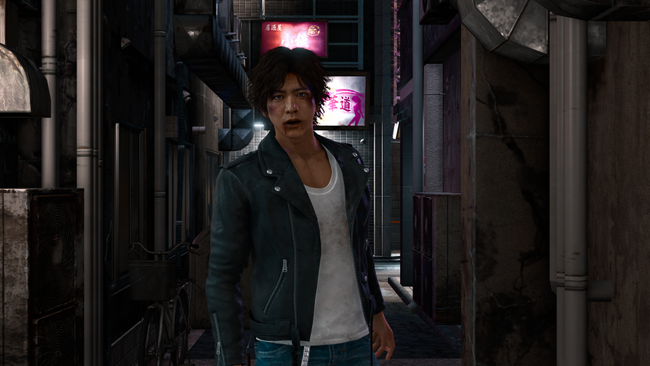
Rumors swirled that the Judgment games might never come to PC, and while nothing was ever known for sure regarding the silence on this front, I told myself I'd get around to playing the console versions of these titles eventually. I had played plenty of Yakuza games over the last several years to keep up with the PC releases, and a spinoff in the same universe with a new cast wasn't enough to get me over the hurdle of trying something purportedly similar, but still fairly foreign.
Now caught up with the main Yakuza series here in late 2022, a surprise PC release of both Judgment games (and the announcement of several upcoming projects) have reenergized my enthusiasm for the franchise. While I don't regret skipping Judgment during the middle of the swarm of Yakuza titles that released in the later part of last decade, now seemed like an opportune time to finally see what I've missed with RGG Studio's spinoff series.
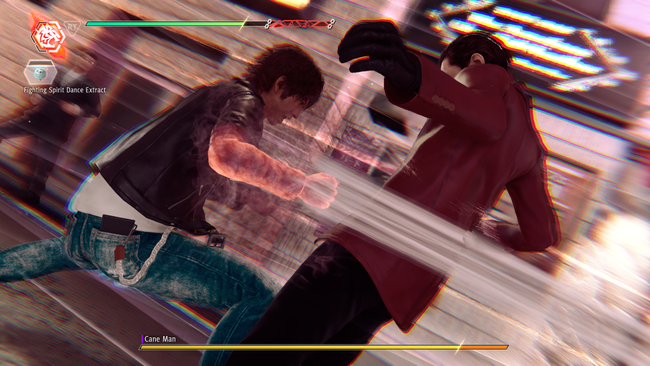
Judgment stars Takayuki Yagami, a lawyer-turned-detective who ends up embroiled in a serial murder case occurring in Kamurocho, the same fictional district of Tokyo in which the majority of Yakuza games are set. As a detective, Yagami utilizes a set of investigative tools ranging from taking photos, to tailing suspects on foot, to piloting a drone in order to scout an area for evidence. In Lost Judgment, the story opens up a bit more slowly, but still places Yagami in a position to piece together the true story behind the events of murder and attempted suicides.
Our initial reviews of both Judgment and Lost Judgment go into more detail about the strengths of these individual titles, but after playing all of the former and much of the later's new PC rendition, the key attribute I find in Yagami's stories is that they are much more grounded and less reliant on convenient contrivances that the mainline series can sometimes fall prey to.
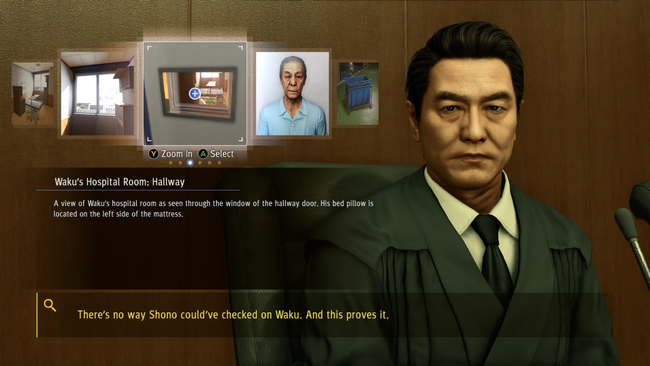
Yagami himself is not a larger-than-life character like longtime series protagonist Kazuma Kiryu, who is basically Tojo Clan royalty by the events of his 2nd or 3rd outing. Yagami works out of a dingy office as a detective and often interacts with the unfolding narrative slightly more removed from the central conflict of each game. While Yagami does have a personal stake in many of the events of Judgment, it's not to the same level of involvement that Kiryu often finds himself in, either for his own sake or for his adoptive daughter, Haruka. Even Ichiban Kasuga, the newest Yakuza protagonist, often steals the stage with his unyielding confidence and fierce emotional drive. Yagami is a different sort of protagonist than both, more of an observer and a listener, and it's a fun shift for a series that is often emphatically boisterous.
In many ways both surface level and beyond, Judgment is still immediately evocative of the main series Yakuza titles despite the different perspective and protagonist. Obviously, Kamurocho itself is still an immediately familiar and nostalgic locale for anyone who's played pretty much any main-series game. Street criminals will still approach the player asking for a fight, in which Yagami can train in various fighting styles, depending on the game. Minigames still dot the street corners for players to lose time in, and sub-stories (now presented as Side Cases) still offer short, self-contained stories that break up the progression of the main narrative in often whimsical ways. Judgment clearly presents itself as a spinoff series in this way, but still manages to carve its own identity as well.
While the gameplay focus is slightly shifted due to the investigative slant of Yagami's background, the way that this is presented from a narrative focus is what stood out to me. While Kiryu occasionally finds himself teaming up with characters like Date and even Majima in abbreviated stints over the course of his adventures, Yagami finds himself closely allied with a large supporting cast by the time the credits roll on his debut title, with almost everyone returning for the events of Lost Judgment as well.
From the former yakuza member Kaito to eager novice lawyer Hoshino to former thief Sugiura, Yagami has a diverse cast of endearing cohorts that really help give a lot of weight to the unfolding narrative as each character reacts to individual events with a slightly different outlook. Yagami's often calmer demeanor allows him to interact well with the supporting cast, and while he doesn't hold the spotlight as fervently as a solo protagonist, he's a great fit for the surprise ensemble that I didn't expect out of Judgment. Only Ichiban's party in Like a Dragon was able to accomplish a similar feat in a single entry, largely due to its design as a party-based RPG.
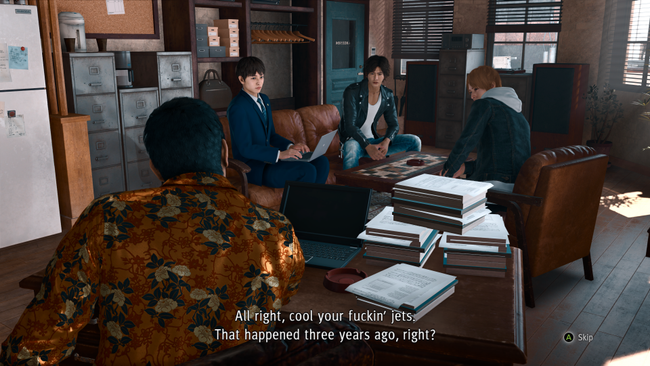
As for the PC release itself, luckily the Dragon Engine's performance on PC is mostly a known commodity at this point due to its use in Yakuza Kiwami 2, Yakuza 6, and Yakuza: Like a Dragon. Both Judgment and Lost Judgment have near identical options for details graphical settings including the typical toggle selections for things like Shadow Quality, enabling or disabling Motion Blur or Depth of Field, and being able to bump down the render scale to squeeze out a bit more FPS.
In my case, the most useful settings here were being able to adjust the field of view slightly to widen the third-person perspective a tad, along with the option to use either FSR 1.0 or FSR 2.0, a similar reconstruction technology to NVidia's DLSS offering. I found that using FSR 2.0 set to Quality would allow me to avoid frame rate dips on crowded Kamurocho streets with only a slight blurring of distance objects -- well worth the trade-off of a major boost to framerate. I also turned off Depth of Field, as the effect was too strong for my liking.
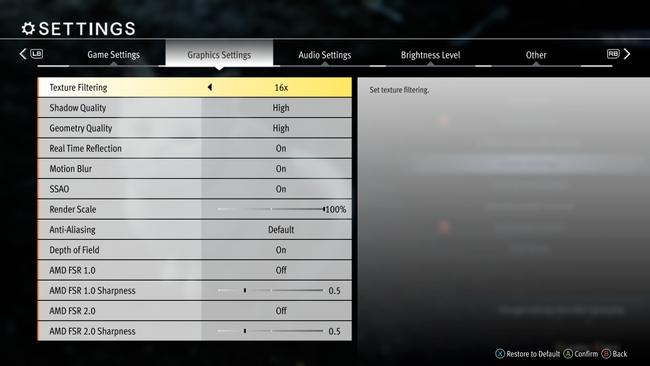
For those that are still in the process of catching up with the numerous releases from RGG Studio over the last several years and aren't certain about whether they can or want to squeeze another entry in due to its nature as a spin-off or series burnout in general, I wholeheartedly recommend starting Judgment, especially for those that prefer the action-brawler style combat system. As the mainline series holds to its shift to a turn-based combat system, the release of Judgment on PC gives me some hope that the sub-series will be able to continue as a way to carry this specific style of game going forward. However, Judgment is more than just some sort of obligation for series veterans, a stand-in for what the mainline series no longer offers; it is a breath of fresh air for the series in its own right.